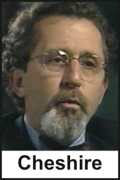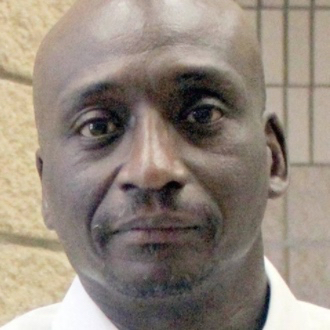Rascals case in brief
In the beginning, in 1989, more than 90 children at the Little Rascals Day Care Center in Edenton, North Carolina, accused a total of 20 adults with 429 instances of sexual abuse over a three-year period. It may have all begun with one parent’s complaint about punishment given her child.
Among the alleged perpetrators: the sheriff and mayor. But prosecutors would charge only Robin Byrum, Darlene Harris, Elizabeth “Betsy” Kelly, Robert “Bob” Kelly, Willard Scott Privott, Shelley Stone and Dawn Wilson – the Edenton 7.
Along with sodomy and beatings, allegations included a baby killed with a handgun, a child being hung upside down from a tree and being set on fire and countless other fantastic incidents involving spaceships, hot air balloons, pirate ships and trained sharks.
By the time prosecutors dropped the last charges in 1997, Little Rascals had become North Carolina’s longest and most costly criminal trial. Prosecutors kept defendants jailed in hopes at least one would turn against their supposed co-conspirators. Remarkably, none did. Another shameful record: Five defendants had to wait longer to face their accusers in court than anyone else in North Carolina history.
Between 1991 and 1997, Ofra Bikel produced three extraordinary episodes on the Little Rascals case for the PBS series “Frontline.” Although “Innocence Lost” did not deter prosecutors, it exposed their tactics and fostered nationwide skepticism and dismay.
With each passing year, the absurdity of the Little Rascals charges has become more obvious. But no admission of error has ever come from prosecutors, police, interviewers or parents. This site is devoted to the issues raised by this case.
On Facebook
Click for earlier Facebook posts archived on this site
Click to go to
Today’s random selection from the Little Rascals Day Care archives….
Click for earlier Facebook posts archived on this site
Click to go to
Today’s random selection from the Little Rascals Day Care archives….
Betsy Kelly wouldn’t succumb to state’s torture
 July 16, 2012
July 16, 2012
“Elizabeth Kelly was denied parole Friday, three months after pleading no contest to charges of sexually abusing children at her Edenton day care.
“Mrs. Kelly, sentenced to seven years, was eligible for parole upon entering prison because she had already served more than two years while awaiting trial.
“Prosecutor Bill Hart said opposition to Mrs. Kelly’s release was heightened by her statements of innocence after entering her plea.
“‘From my work dealing with sex offenders there is no way you can treat a sex offender and restore them to the community until that person admits the wrongness of her actions and takes responsibility….’”
– From the Associated Press, April 16, 1994
From the beginning, the prosecution never missed a chance to tighten the thumbscrews on Betsy Kelly: Plead guilty, implicate your husband or suffer grave consequences. Although she eventually took a plea bargain, she never accommodated Bill Hart’s pious insistence that she admit “the wrongness of her actions.”
In October 1989, about six weeks after her arrest, a hearing had been held in Raleigh on whether Kelly should be forced to move from a mental health unit into Dorm C at women’s prison.
Recalls Faye Sultan, a Charlotte forensic psychologist who testified on her behalf: “She had been found guilty of nothing at that point, but she was being housed in the most isolated, restrictive facility in the prison, where Death Row and disciplinary inmates were housed. Seems a bit unfair, no?”
Sultan testified that Kelly’s “psychological condition is rapidly deteriorating, and in fact she is on the edge of becoming psychotic.”
Why would the state insist on moving a pretrial “safekeeping” defendant to such a hostile environment? “The reason was to pressure Betsy,” says Joe Cheshire, her lawyer. “They didn’t know her very well, did they?”
‘We cannot give him back those years….’

newsobserver.com
Edward Charles McInnis
May 29, 2016
“ ‘On behalf of the State of North Carolina, I apologize to Mr. (Edward Charles) McInnis for the 27 years he had to spend behind bars for crimes he did not commit,’ McCrory said in a statement announcing the pardon. ‘While we cannot give him back those years of his life, I wish him well as he resumes his life as a free man.’ ”
– From “NC Gov. McCrory pardons Scotland County man” by Anne Blythe in the News & Observer (May 19) (text cache)
Another DNA exoneration – thanks yet again, North Carolina Innocence Inquiry Commission – and this time both District Attorney Kristy Newton and Gov. McCrory acted expeditiously and humanely.
I look forward to seeing the governor extend such sentiments toward Junior Chandler, who has now spent more than 29 years behind bars.
![]()
‘Parent-experts’ found meaning where there was none
 April 6, 2012
April 6, 2012
“Parent-experts made a specific kind of sense of their children’s behaviors and emotions by retrospectively interpreting them as sequelae of day care ritual abuse rather than as reactions to familial stress, the vicissitudes of growing up or, for that matter, the stress of the investigation and the interrogations. ….
“Parent-experts testified that they never had reason to worry about their children’s behavior until they disclosed ritual abuse. Then, to the parent-experts, the tantrums, fears and sleep disturbances that once had looked like nothing more than normal growing pains were retrospectively interpreted….”
– From “The Day Care Ritual Abuse Moral Panic” by Mary De Young (2004)
Judge Marsh McLelland’s allowing parents to testify as experts about their children’s behavior was one of the key defects pointed out by the N.C. Court of Appeals in overturning the convictions of Bob Kelly and Dawn Wilson.
Shame links Edenton with other ‘ritual abuse’ sites
 Oct. 11, 2015
Oct. 11, 2015
“Satanism lacks a (Jim) Jones or (David) Koresh. Satanism has no Jonestown, no Waco, no Kool-Aid, no casual point of reference.
“This is because Satanic cults, as imagined in popular culture, do not exist.
“Still, some places across the country – West Memphis, Arkansas; Manhattan Beach, California; Edenton, North Carolina; Austin, Texas – belong to a brotherhood of cities united not by the stunned, silent grief of a tragedy like Waco’s, but by the shame of having left innocent families’ lives in ruin in the fervent pursuit of an imaginary evil….
“The ‘Satanic Panic’ of the 1980s and early ’90s was arguably even more frightening than a typical cult precisely because of this lack of a central figure or place; anybody could have been involved, and nobody was above suspicion….”
– From “Conviction of Things Not Seen: The Uniquely American Myth of Satanic Cults” by Dan Shewan at Pacific Standard (Oct. 8)











0 CommentsComment on Facebook